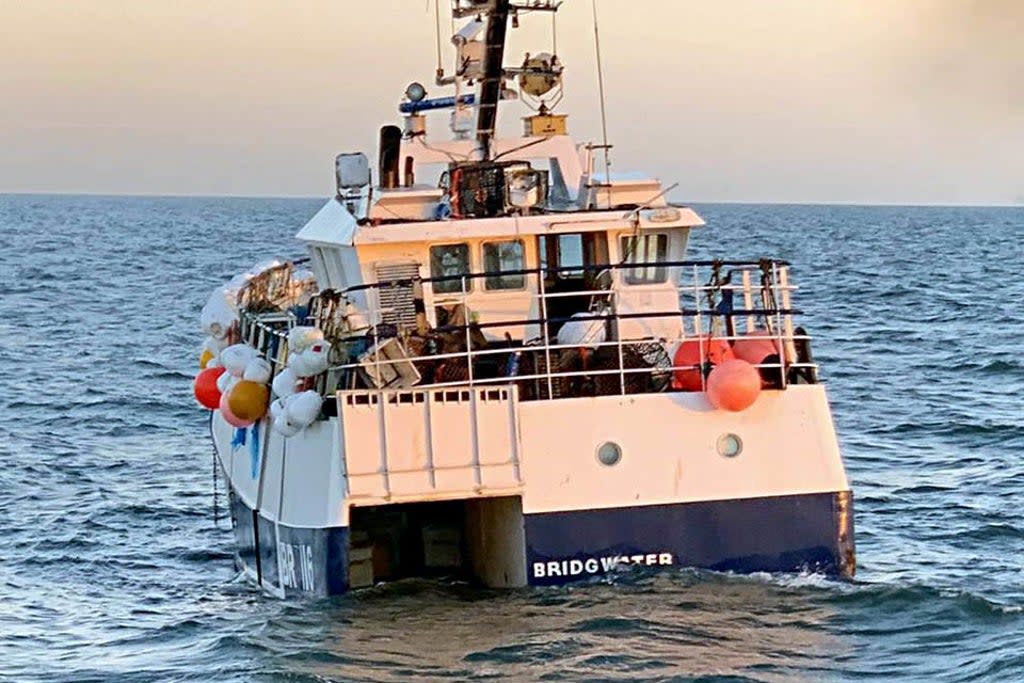Fishermen ‘fortunate not to be killed’ after boat hit by wartime bomb used in Blitz, investigation finds

Seven fisherman were lucky to escape with their lives after their vessel was hit by an explosion from an underwater German wartime bomb in December 2020, a marine investigation has found.
Five members of the Galwad-Y-Mor crew came away from the incident with serious injuries, some of which were life-altering.
The explosion off the Norfolk coast, a report from the Marine Accident Investigation Branch (MAIB), said, was thought to have come from a German explosive - likely an SC250, a bomb famed for its use during the Blitz.
The MAIB report said: “Although the physical injuries were significant to five of the seven crew, they were fortunate not to be killed.”
According to MAIB, the crew had been tugging a line of 100 crab pots from the seabed when they became aware of “a lot on tension”.
The skipper proceeded to rev the engine to break free from the line, when three bangs were heard on the main deck around 11.22am.
The sudden jolt had troubled an unexploded 250kg bomb that had laid dormant on the seabed since the Second World War.
The shockwaves caused the vessel to pitch and roll. The skipper hit his head and four other crew members were badly injured. All five were left unconscious. Water flooded the deck and the power was shut off.
The skipper eventually regained consciousness and woke the night watchman, who sent a distress call to the coastguard. The crew were ordered to make preparations to evacuate the ship.
The distress call was picked up by another nearby vessel, the Esvagt Njord, who sent a rescue boat.
Each member of the Galwad-Y-Mor crew were taken to hospital to be treated for their injuries.
The report that the crew said “could not have foreseen the explosion and their level of preparedness to deal with such an emergency saved lives”.
This article was amended on 4 February 2022 to make it clear that the report was about an incident that occurred in 2020. The article previously gave the inaccurate impression that the incident had occurred recently.

